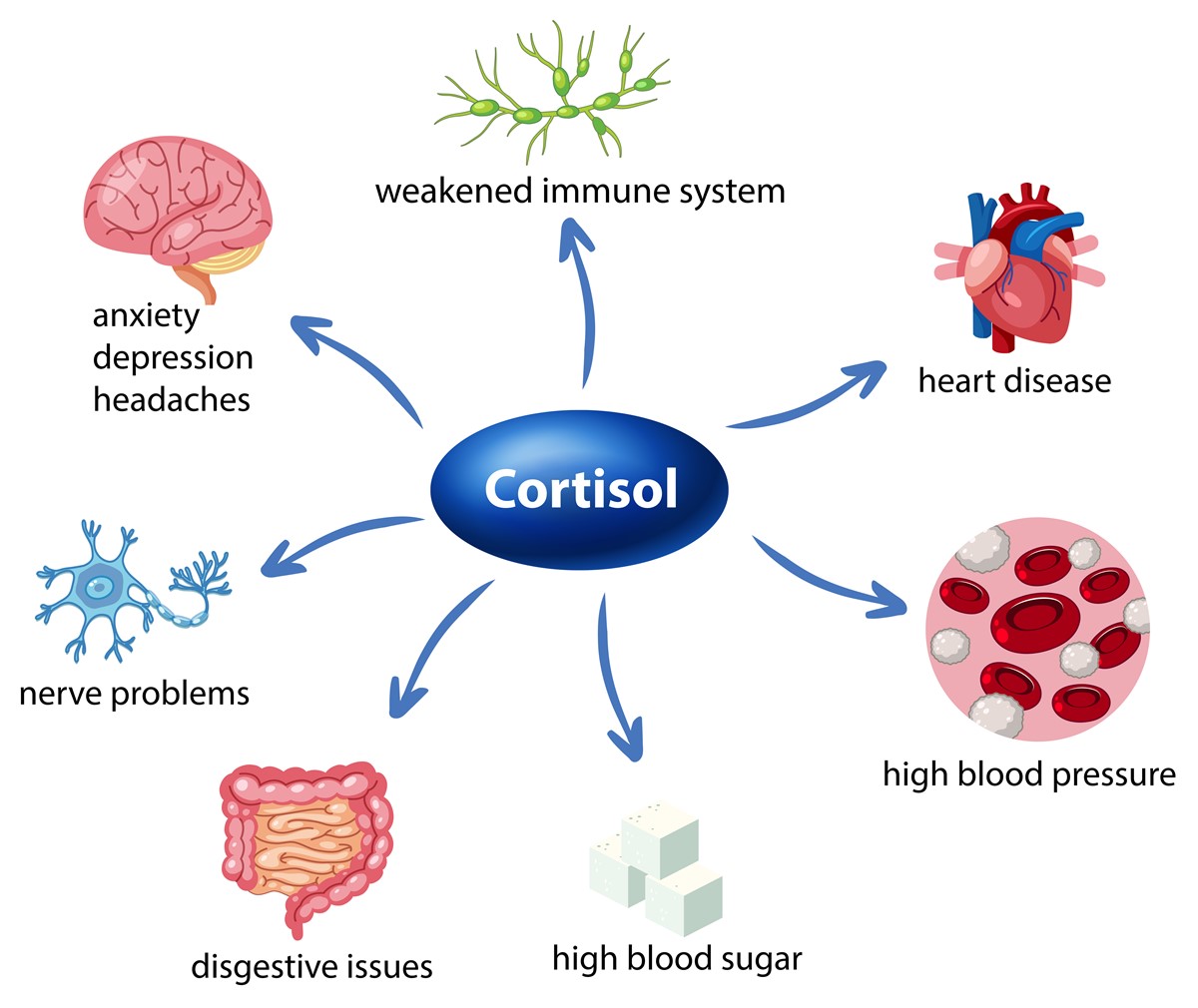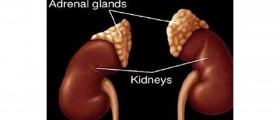Cortisol is a hormone produced by the adrenal gland or, to be more precise, the cortex of the adrenal gland. In healthy individuals cortisol is produced more in the morning than in the evening. This is the reason why we have more energy during the day than in the evening. The body needs an adequate amount of cortisol to function properly. Any lack or excess of the hormone is responsible for specific changes in the body and if left untreated may cause serious complications.

Causes of Elevated Cortisol Levels
In many cases high levels of cortisol occur due to excessive production of ACTH (adrenocorticotropic hormone), a hormone of the pituitary gland in charge of stimulation of the adrenal glands. Furthermore, since cortisol plays a significant role in prevention of many negative effects caused by stress it is no wonder that elevated cortisol levels occur due to chronic stress exposure.
Apart from the previously mentioned, elevated cortisol levels occur due to hyperthyroidism, may affect pregnant women and represent one of the characteristics of pituitary gland tumors (tumors that are hormonally active). Adrenal malfunction (different illnesses or tumors) is another cause of elevated cortisol levels. And finally, the levels of cortisol can be high due to the intake of birth control pills or several more medications or is associated with the high intake of caffeine.
Clinical Characteristics of Elevated Cortisol Levels
There are many symptoms and signs of elevated cortisol levels, and they generally depend on the effects of cortisol on different organs and organ systems.
For example, in case of excess of cortisol, an individual suffers from unexplained weight gain. Fat tissues predominantly accumulated in the abdomen (fat accumulates in the upper body while the lower body remains slim) and it may be hard to lose weight. Such people may also develop Cushing's syndrome, diabetes, high blood pressure, acne and many psychological problems such as irritation, anxiety, depression, paranoia and insomnia. Women have irregular menstrual cycles and suffer from infertility or abnormal hair growth on the face, chest and neck. The condition is also associated with stretch marks, muscle and bone weakness. In men, elevated cortisol levels cause erectile dysfunction and low sex drive.
Treatment for Elevated Cortisol Levels
The goal of the treatment is to achieve an optimal level of cortisol in the blood. It is essential to treat the underlying cause of elevated cortisol levels or the condition that has led to the problem. Some patients are treated with medications while others require surgery or additional treatments. People in whom cortisol is high due to stress should learn certain techniques which can make it easier for them to cope with everyday stress.

















Your thoughts on this
Loading...